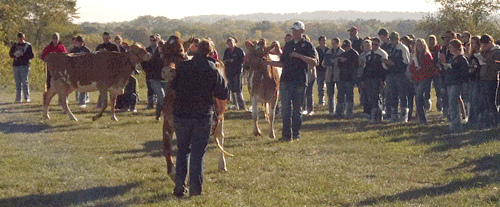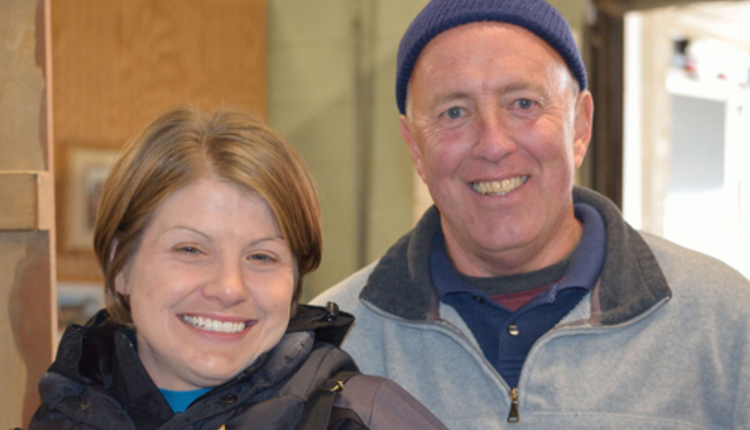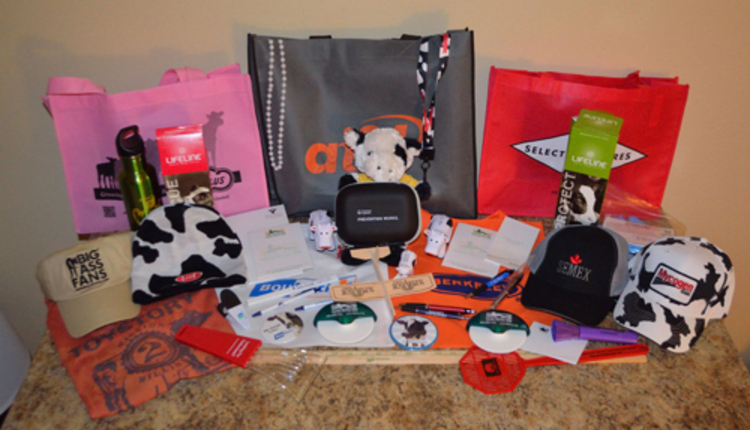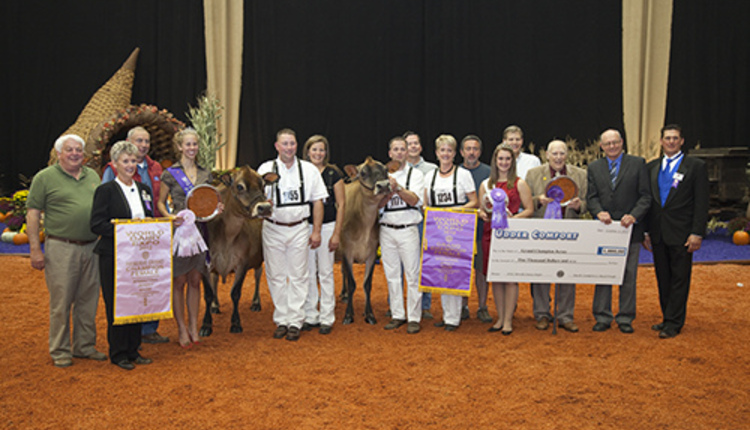While many of us grow up competing as dairy cattle judges, a few get the chance to foster young people through the process. While youth were evaluating cattle at the Hoard's Dairyman Farm early Sunday morning, I took a moment to talk to some of the coaches. Between three classes of Guernsey cows, I visited with Dale Olver, Penn State; Bonnie Ayers, Ohio State; Katharine Knowlton, Virginia Tech; and Isidro Matamoros, Zamorano Pan-American Agricultural School.
No matter their judging philosophy, each coach agreed that the most rewarding part of coaching is providing students with memorable learning experiences.
Matamoros traveled here with six students from Honduras, one from Guatemala, and two from Ecuador. Traveling to World Dairy Expo allows his students to compare the similarities and differences of dairy farming between their home countries and the United States. Matamoros also noted that American judging contests are different from in Honduras because his students are typically asked to judge shows where class sizes vary, rather than the standard classes of four animals in American judging contests.
"Many of the students on this team come from small towns," explained Matamoros. "This trip gives them a chance to have a new experience. After we are done at Expo, our students will visit Chicago for sight-seeing."
Knowlton has instilled the focus and knowledge in Virginia Tech students needed for judging, but the one reminder she constantly gives her students is to take a step back to see the cows.
"The best advice I can give the kids is to move back to see the cows better," explained Knowlton. "But, the biggest thing they will remember is the people they meet and the farms they visit while practicing."
Olver preaches the scorecard to his Penn State judging team members. Even though the scorecard has transformed over the years, Olver believes the changes have been easy to teach to his students.
"Our students are learning to select cows that best fit our industry. The scorecard provides them a guideline and terminology to do this," explained Olver. "The farms they visit are the most valuable part. Twenty years down the road, they will still remember the places they went when they were judging."

Ayers has many years of experience coaching both the 4-H and Collegiate teams from Ohio. The dual program has offered her students a unique learning community.
"The kids learn from each other. The 4-H kids teach our college kids and vice versa," she explained. "From the traveling, to ringside judging, to clinics, they gain a balance of exemplary experiences."
Return to Hoard's at Expo
No matter their judging philosophy, each coach agreed that the most rewarding part of coaching is providing students with memorable learning experiences.
Matamoros traveled here with six students from Honduras, one from Guatemala, and two from Ecuador. Traveling to World Dairy Expo allows his students to compare the similarities and differences of dairy farming between their home countries and the United States. Matamoros also noted that American judging contests are different from in Honduras because his students are typically asked to judge shows where class sizes vary, rather than the standard classes of four animals in American judging contests.
"Many of the students on this team come from small towns," explained Matamoros. "This trip gives them a chance to have a new experience. After we are done at Expo, our students will visit Chicago for sight-seeing."
Knowlton has instilled the focus and knowledge in Virginia Tech students needed for judging, but the one reminder she constantly gives her students is to take a step back to see the cows.
"The best advice I can give the kids is to move back to see the cows better," explained Knowlton. "But, the biggest thing they will remember is the people they meet and the farms they visit while practicing."
Olver preaches the scorecard to his Penn State judging team members. Even though the scorecard has transformed over the years, Olver believes the changes have been easy to teach to his students.
"Our students are learning to select cows that best fit our industry. The scorecard provides them a guideline and terminology to do this," explained Olver. "The farms they visit are the most valuable part. Twenty years down the road, they will still remember the places they went when they were judging."

Ayers has many years of experience coaching both the 4-H and Collegiate teams from Ohio. The dual program has offered her students a unique learning community.
"The kids learn from each other. The 4-H kids teach our college kids and vice versa," she explained. "From the traveling, to ringside judging, to clinics, they gain a balance of exemplary experiences."









